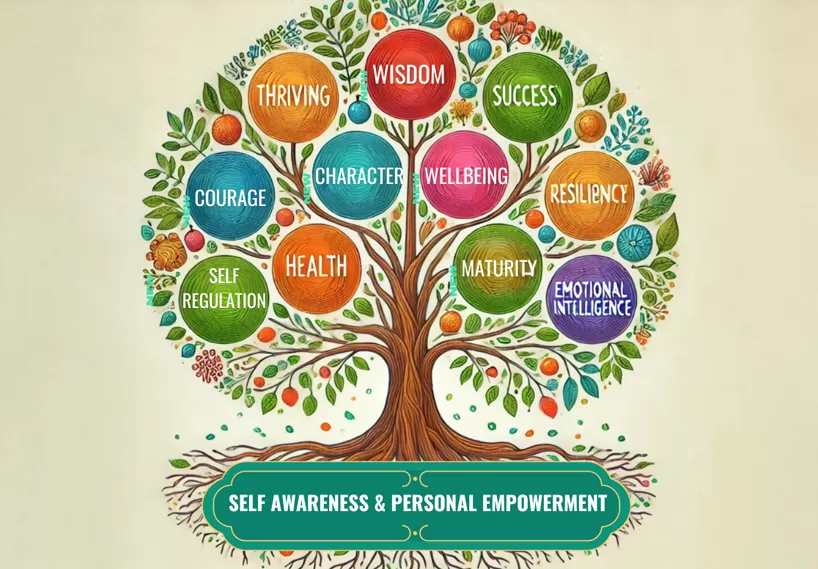The Importance of Self-Awareness and Personal Empowerment as Core Subjects
Does Your School Need a Wellness Reboot?
In our modern education system, the emphasis is heavily placed on academic points and scores, predominantly for the purposes of university entrance. However, as we grapple with rising mental, physical and emotional health issues among students, it's clear we are neglecting the very foundation of human flourishing: their wellbeing, self-awareness and personal empowerment.
The State of Australian Student Wellbeing
Australian statistics paint a sobering picture. According to the Australian Institute of Health and Welfare (AIHW), 1 in 7 children aged 4-17 experienced a mental health disorder in the past year. Additionally, Headspace reports that 75% of mental health issues emerge before the age of 25, yet only 31% of young people seek professional help. Clearly support is best provided within the existing structure of a young person’s life, schooling being the most consistent option for many.
When students lack the skills to manage their wellbeing, the effects are far-reaching. Poor mental health can lead to decreased academic performance, higher dropout rates and long-term socioeconomic consequences. By prioritizing learning that nurtures emotional intelligence, resilience and self-awareness, we empower students to handle life’s challenges with maturity.
Beyond Scores: The Real Impact
Wellbeing, self-awareness and personal empowerment are critical components of education that impact every facet of a student’s life. These skills help students:
- Build Resilience: Bounce back from setbacks and challenges.
- Improve Relationships: Develop empathy and effective communication.
- Enhance Academic Performance: Cultivate a positive mindset and motivation.
- Promote Lifelong Success: Equip them with tools to thrive in personal and professional arenas.
These skills transcend learning that may be obsolete within a decade (or sooner if the pace of technology continues!). They are advantageous to any and all industries, jobs and careers.
Advocating for Change
The recent Educator Australia study entitled “Wellbeing top priority for Australian schools” says; “Despite the growing demand, more than half of the teachers (53%) feel inadequately equipped to manage wellbeing and mental health issues. In 2023, almost three in four (71%) wellbeing-focused applications identified the need for professional development for educators as the most effective strategy to better support children’s wellbeing”.
There are few schools at the vanguard of the wellbeing and holistic health movement for staff and students. Many have made token gestures that often have more negative impact than benefits for students. Timetabling 30 minutes per week for Life Skills sessions creates little of value. It's time for school management and teachers to champion the inclusion of wellbeing, self-awareness and personal empowerment in the school curriculum and to take it as seriously as the sobering statistics warrant. By doing so, we can foster a generation of resilient, self-aware and empowered individuals who are equipped to lead fulfilling lives.
It seems we have a choice to continue with a reactionary and interventionist approach or operate from a proactive, “grass roots” foundation. Investing in the mental, physical, and emotional health of our students is an educational and societal imperative. Let’s shift the focus from merely surviving academic pressures to thriving in all aspects of life. Together, we can make a profound difference.
Courses like our 10860NAT Certificate III in Personal Empowerment and 10939NAT Certificate II in Self Awareness and Development are designed to provide these essential skills in a structured, impactful way. The added bonus is that they attract QCE points and can be delivered by approved teachers under cost effective partnership arrangements.
For more information on how our courses can benefit your school, visit Blueprint Career Development.
Sources:
- Australian Institute of Health and Welfare (AIHW) report on youth mental health.
- Headspace National Youth Mental Health Foundation statistics.
- The Educator Australia - Wellbeing top priority for Australian schools


